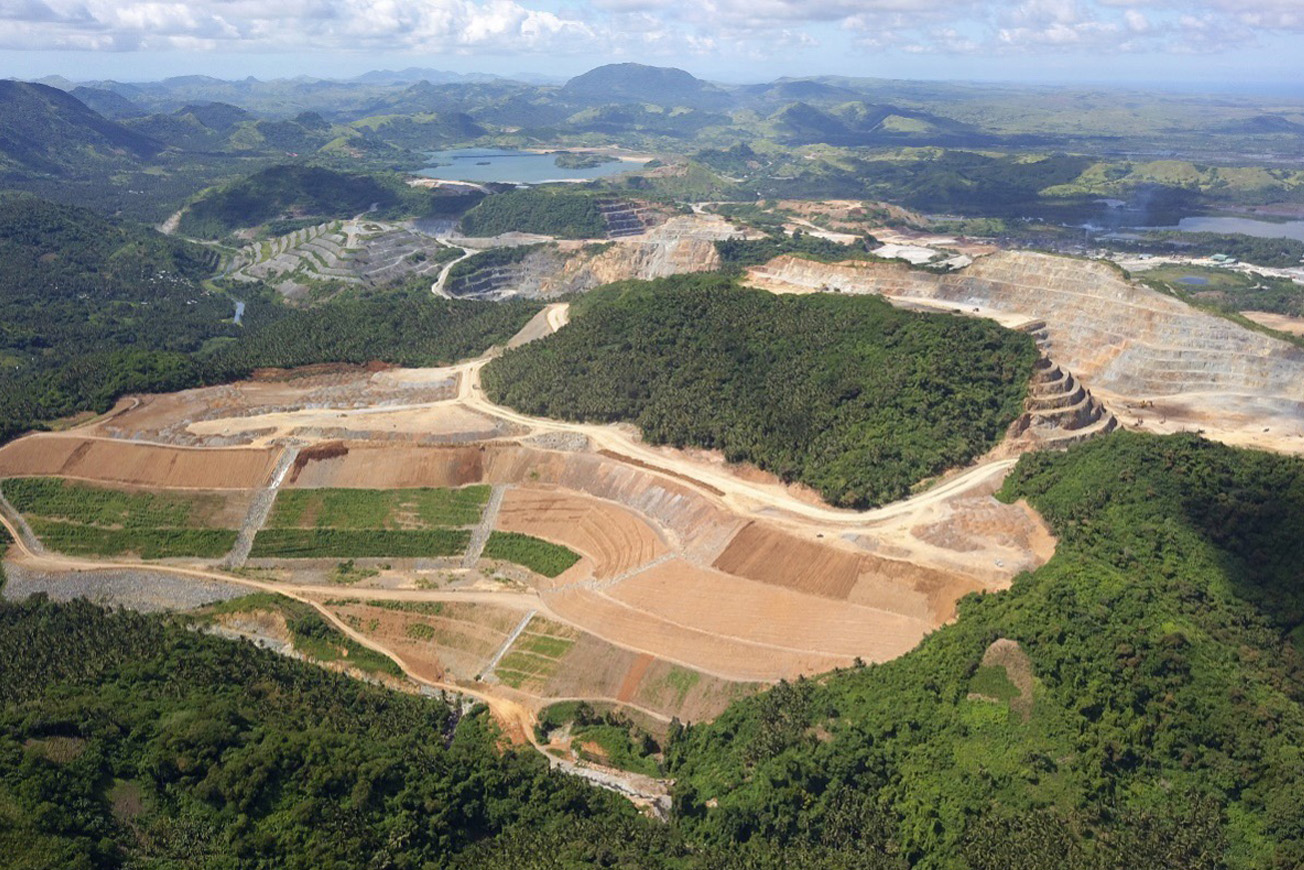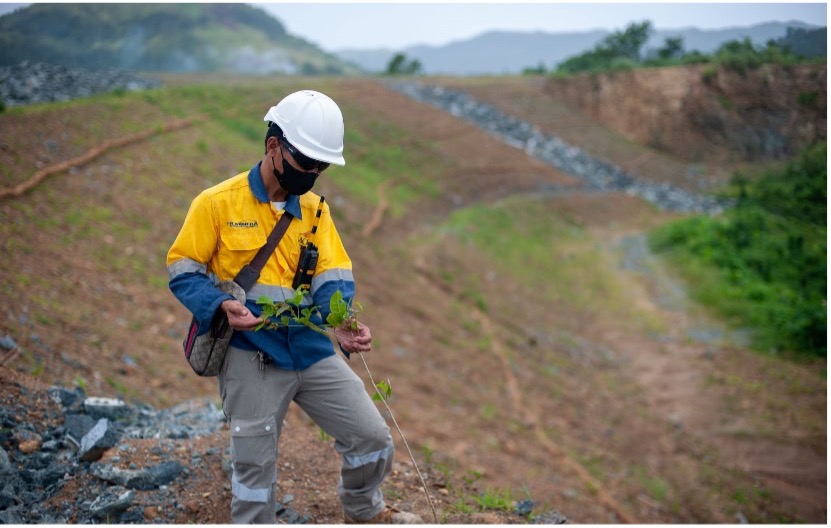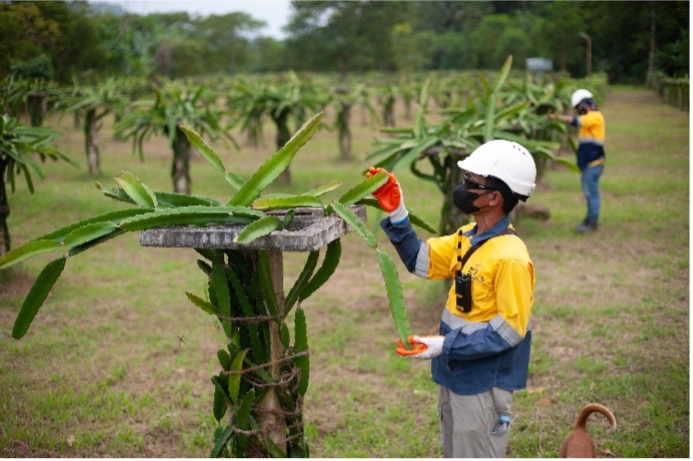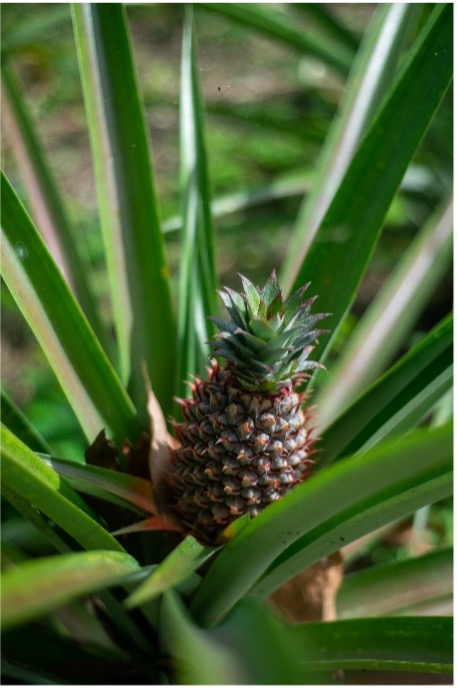Our Stories
Fruit Trees for the Future: Agroforestry at Syndicate Waste Rock Dump, Masbate

February 21, 2024
In this three-part series, we take a closer look at the reclamation and reforestation work taking place at B2Gold’s Masbate Gold Project in the Philippines. In this second article, we explore the rehabilitation of the Syndicate Waste Rock Dump, one of three dumps being rehabilitated at the mine site.

The team at our Masbate Gold Project (MGP) is committed to rehabilitating and restoring mined out areas into land that is ecologically sound and, where practical, economically productive for local communities.
To help meet these goals, B2Gold through MGP mining operator, Filminera, launched a trial agroforestry initiative was launched in 2021, in partnership with the Dr. Emilio B. Espinosa, Sr. Memorial State College of Agriculture and Technology (DEBESMSCAT) – to rehabilitate the Syndicate Waste Rock Dump.
“The ultimate goal of this project is to determine if agroforestry is suitable for the site as a final land use, and to then transfer the technology or technique to the community for livelihood opportunities,” says Maureen Rapsing-Bien, Environmental Superintendent at the Masbate Gold Project.
Working Trees: Forests that Give Back
One way to think of agroforestry is “working trees,” a land-management approach that provides opportunities for food production and profitability, as well as environmental stewardship – toward healthier and more sustainable agricultural systems.

MGP’s Environmental Department, in consultation with the local partners settled on trial crops that are locally available and thrive in the area, including pineapple, mango, dragon fruit, chestnuts and coffee.
Within the context of our Masbate operation and its impacted communities, the project addresses several potential challenges: biodiversity loss, unproductive land, soil- and water-quality degradation, food scarcity and livelihood deprivation – creating a shared community resource that will pass to future generations.
Reaping the Benefits for Masbate Communities
Despite obstacles presented by the pandemic, typhoons, fires and pests, the plantations have continued to thrive and grow.

The dragon fruit harvest for instance, totalled 500 kg in 2022, with larger fruit compared to harvests in the rest of the province. The team estimated that 50 per cent of the coffee plants would bear flowers and ultimately produce fruit after two years – recently the team was able to harvest a kilo of coffee berries from the farm. The chestnut seedlings’ height ranged from 120 cm to 180 cm, and about 50% are expected to produce fruit soon.
Looking to the future, the agroforestry initiative at the Masbate Gold Project offers a promising solution to the multifaceted challenges faced by the local community.
As Dr. John Lorana, Program Leader for the College, put it: “The project’s progress sets the stage for the eventual development of value-added products, paving the way for a brighter and more sustainable future for Masbate Island.”
Learn more about B2Gold’s responsible-mining initiatives at MPG and around the world in our most recent Responsible Mining Report.


